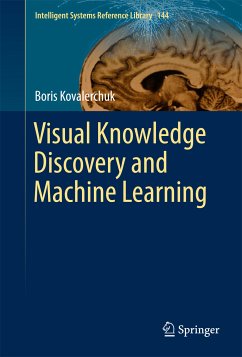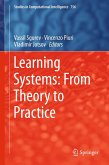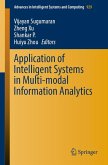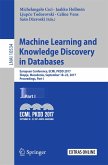This book combines the advantages of high-dimensional data visualization and machine learning in the context of identifying complex n-D data patterns. It vastly expands the class of reversible lossless 2-D and 3-D visualization methods, which preserve the n-D information. This class of visual representations, called the General Lines Coordinates (GLCs), is accompanied by a set of algorithms for n-D data classification, clustering, dimension reduction, and Pareto optimization. The mathematical and theoretical analyses and methodology of GLC are included, and the usefulness of this new approach is demonstrated in multiple case studies. These include the Challenger disaster, world hunger data, health monitoring, image processing, text classification, market forecasts for a currency exchange rate, computer-aided medical diagnostics, and others. As such, the book offers a unique resource for students, researchers, and practitioners in the emerging field of Data Science.
Dieser Download kann aus rechtlichen Gründen nur mit Rechnungsadresse in A, B, BG, CY, CZ, D, DK, EW, E, FIN, F, GR, HR, H, IRL, I, LT, L, LR, M, NL, PL, P, R, S, SLO, SK ausgeliefert werden.









